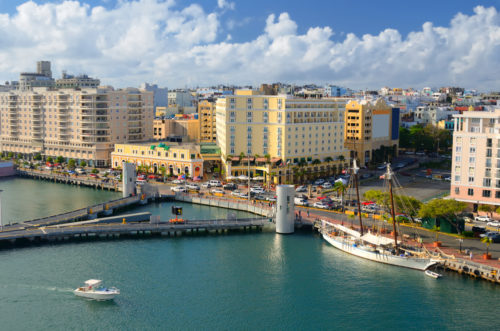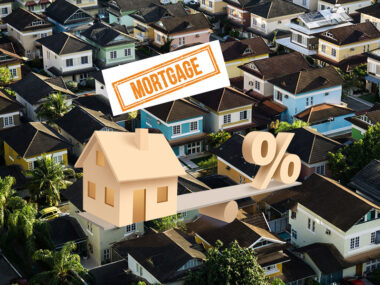Since the early 20th century, federal minimum wage regulations have protected those in the U.S. from unfair pay as part of the Fair Labor Standards Act (FLSA), with some exemptions. However, the minimum wage has been stagnant for the past decade. However, states and cities can set their own regulations to ensure that a greater percentage of their people can earn a living wage.
If you live in Puerto Rico or plan to move there soon, the minimum wage could have a major impact on your income. How does the minimum wage in Puerto Rico compare to the federally mandated minimum?
Table of Contents
2020 Minimum Wage in Puerto Rico: $7.25 per hour
The minimum wage in Puerto Rican law is $6.55, which is lower than the federal minimum wage of $7.25. However, when the local minimum wage is lower than federal, employers must pay staff the higher amount. This makes the minimum wage in Puerto Rico $7.25 by default for employers covered by the FLSA. In effect, this places the minimum earnings for full-time employees in the same ballpark as states like Utah and Iowa, which both use the federal minimum wage.
One recent change is that of federally funded relief worker wages. While these employees typically receive a mandated $15 an hour wage, the Puerto Rican government must suspend this wage restriction (among other stipulations) in order to receive $16 billion in relief funds. This means these employees can be paid below this amount.
Tipped: $2.13 per hour
Because employers can deduct up to $5.12 per hour as a tip credit, the minimum wage for employees who receive tips is $2.13. This means that the tips that they receive must at least bring their earnings up to the mandated amount of $7.25. If they do not, the employer must make up the difference.
Weekly: $290
Under the minimum wage in Puerto Rico, an individual working 40 hours each week earns $290 per week, before tax withholdings and insurance are deducted by the employer. This is lower than the required minimum wage for salaried employees to remain exempt, which is $455 per week.
Annually: $15,080
Further extrapolated, a person earning a wage of $7.25 could earn $15,080 annually. This is slightly higher than the poverty threshold for a family of two adults. This figure ignores overtime pay, holiday pay, and vacation days, so actual take-home pay may vary. This is $14,380 shy of Puerto Rico’s annual median wage of $29,460.
Overtime: $10.88 per hour
For most hourly workers who exceed 40 hours a week, each hour beyond 40 is subject to an increased pay rate. The overtime pay rate is 1.5 times greater than the standard wages. While local law demands an overtime rate of $9.83 in Puerto Rico, federal law mandates $10.88 per hour for overtime pay. This makes the effective minimum overtime rate the latter: $10.88.
Minimum wage laws can give employees in certain sectors a good idea of what they will be paid upon moving to Puerto Rico. According to the Bureau of Labor Statistics, the positions with the lowest wages are construction workers, woodworking professionals, food preparation workers, retail workers, and sales workers. The median wage for these positions is between $8.49 and $8.62. This contrasts with the median wage across all industries, which is $10.01.
Note that employers in Puerto Rico not covered by the FLSA must pay employees at least 70% of the federal minimum wage, which is $5.08. Employers can appeal to the Secretary of Labor and Human Resources for a lower percentage if they can prove that the 70% rate would excessively limit the number of staff they could afford to keep employed.
Puerto Rico Minimum Wage Increase News
While the minimum wage in Puerto Rico is evaluated annually based on the Consumer Price Index, it has not been raised since 2008. Will Puerto Rico see an increased minimum wage at any point in the near future?
In September 2019, a piece of legislation was presented in the House of Representatives that would increase the minimum wage to $8.25. This would take place one year from its passage, meaning this potential increase would occur as early as 2021. However, there has been no further movement on this legislation thus far.
A minimum wage increase in 2020 is unlikely. In fact, critics have pointed to the minimum wage as being a key factor in the current economic destabilization of the area, starting in 2006. Short of asking for a raise or taking on some side gigs, it’s unlikely that those getting paid the minimum wage will see increased wages in the near future.
Image Source: https://depositphotos.com/





